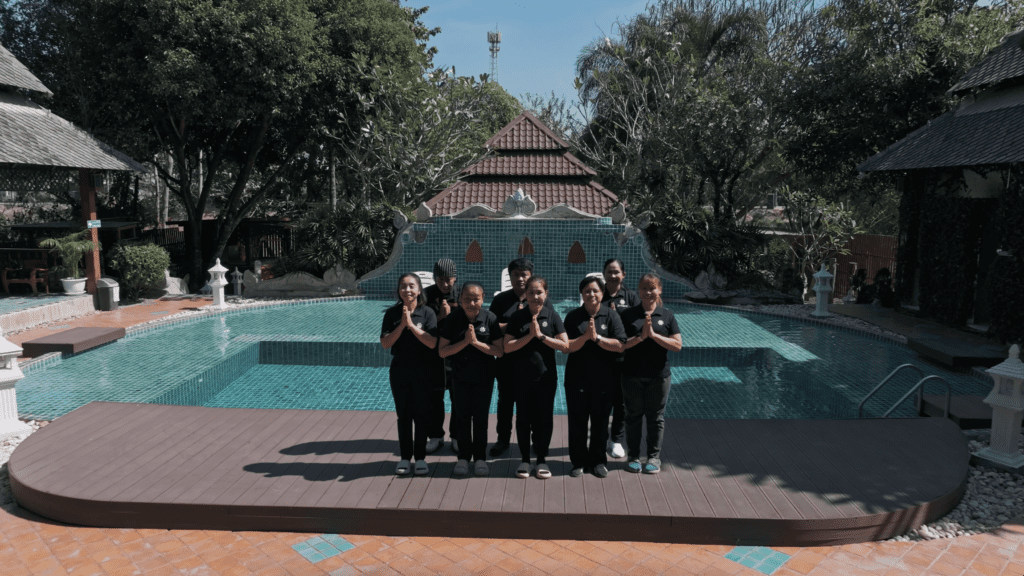Why Generic Rehabs Fall Short and Tailored Treatment Succeeds

In the world of addiction recovery, the stakes are high, and the methods vary widely. Rehabs have historically adopted a “one size fits all” approach, accepting clients of all ages, addiction types, and mental health conditions into a single program. While such inclusivity might appear beneficial on the surface, this model often struggles to address the unique and diverse needs of individuals.
On the other hand, rehabs like Jintara, which cater to a more defined demographic—specifically individuals over the age of 30—and limit their client base to a small, focused group, offer a targeted approach to treatment. By prioritizing personalized care and tailoring programs to specific life stages and co-occurring conditions, Jintara exemplifies why a specialized approach can often yield better, long-lasting recovery outcomes.
The Shortcomings of “One Size Fits All” Rehabs
The traditional “one size fits all” rehab model is often built on the premise of inclusivity and scalability, but this framework has critical limitations:
1. Lack of Cohesion Among Clients
Rehabs that accept clients from all age groups and backgrounds often create a diverse yet fragmented community. While diversity can foster empathy, it can also hinder cohesion. For instance:
- Age Disparity: A 19-year-old struggling with social media addiction may have vastly different needs and life experiences compared to a 50-year-old dealing with alcohol dependence and career burnout.
- Different Triggers and Challenges: Younger individuals might focus on peer pressure or identity issues, while older adults may grapple with long-standing trauma or family dynamics. These differences can make group therapy sessions less relatable and effective.
2. Generalized Treatment Plans
Programs that aim to treat all types of addictions and mental health conditions often rely on generalized protocols. This approach might work for some, but it tends to overlook the nuances of individual circumstances. Addiction rarely exists in isolation; underlying mental health conditions, social factors, and personal histories all play a role in shaping each client’s recovery journey.
3. Overcrowding and Limited Resources
Rehabs that cater to large numbers of clients can struggle with providing adequate attention to each individual. High client-to-staff ratios mean that personalized care often takes a backseat to administrative efficiency. In such settings, clients may feel like just another number, diminishing their sense of belonging and commitment to recovery.
4. Insufficient Focus on Underlying Issues
Addiction is frequently a symptom of deeper, unresolved issues such as trauma, anxiety, or depression. Generalized programs often focus heavily on surface-level behavioral changes without delving deeply into the root causes of addiction. This oversight can lead to relapse when underlying issues remain untreated.
The Power of Specialized Treatment
Rehabs that limit their client base to a specific demographic and focus on comprehensive care for both addiction and underlying mental health conditions are better positioned to deliver effective results. Here’s why:
1. Focused Age Groups Foster Connection
Programs that cater to a specific age group, such as those over 30, create a more relatable and supportive community. Adults in this age range often face unique challenges, such as:
- Balancing work and family responsibilities.
- Coping with long-term substance use and its physical or emotional toll.
- Addressing midlife crises or re-evaluating life goals.
By surrounding clients with peers who share similar life stages and challenges, these rehabs foster meaningful connections that enhance the therapeutic experience.
2. Customized Treatment Plans
Tailored treatment plans account for the complexities of addiction and co-occurring mental health conditions. These plans often incorporate evidence-based therapies such as:
- Cognitive Behavioral Therapy (CBT): Helps clients identify and change negative thought patterns.
- Trauma-Informed Care: Addresses past trauma that may contribute to addictive behaviors.
- Dual Diagnosis Treatment: Simultaneously treats addiction and mental health disorders.
3. Small Group Settings Ensure Personalized Care
Rehabs that limit their client base to 10 or fewer individuals can provide a level of personalized attention that larger facilities cannot match. This approach ensures:
- Stronger Client-Staff Relationships: Therapists and staff can develop a deeper understanding of each client’s needs.
- Tailored Group Therapy Sessions: Smaller groups allow for more open, honest, and impactful discussions.
- Increased Accountability: Clients are less likely to feel lost in the crowd, fostering a greater sense of responsibility for their recovery.
4. Comprehensive Care for Underlying Issues
Addiction is rarely just about substances; it’s often a coping mechanism for deeper issues. Specialized rehabs invest in therapies and programs that uncover and address these root causes, reducing the likelihood of relapse.
Why Jintara Rehab Stands Out
Jintara Rehab exemplifies the benefits of a focused, personalized approach to recovery. Here’s what sets it apart:
1. Exclusivity for Clients Over 30
Jintara specializes in treating adults over the age of 30, recognizing that this demographic often faces distinct challenges:
- Professional and Family Pressures: Many clients juggle demanding careers and family responsibilities, requiring a treatment approach that accommodates these stressors.
- Chronic Substance Use: Older clients may have longer histories of substance use, necessitating more intensive therapeutic interventions.
- Physical Health Considerations: As people age, addiction takes a greater toll on physical health. Jintara incorporates medical care to address these needs.
2. Focus on Dual Diagnosis
Jintara understands the interplay between addiction and mental health. By offering dual-diagnosis treatment, the rehab ensures that clients receive care for both their addiction and underlying conditions such as depression, anxiety, or PTSD. This comprehensive approach minimizes the risk of relapse and promotes long-term recovery.
3. Intimate Setting with Limited Clients
By accepting only 10 clients at a time, Jintara creates a close-knit, supportive environment where individuals feel seen and valued. This small group setting facilitates:
- Deep Therapeutic Relationships: Clients form trusting bonds with therapists and peers.
- Tailored Interventions: Each client’s unique needs are prioritized.
- Enhanced Privacy: A smaller client base ensures a more private and comfortable experience.
4. Holistic and Evidence-Based Therapies
Jintara integrates a range of therapeutic modalities to address the mind, body, and spirit. These include:
- Mindfulness and Meditation: To improve emotional regulation and stress management.
- Exercise and Nutrition Programs: To promote physical health and well-being.
- Art and Music Therapy: To provide creative outlets for self-expression.
5. Serene Environment
Located in a tranquil setting, Jintara provides a peaceful escape from the stressors of daily life, allowing clients to focus entirely on their recovery. The calming atmosphere is conducive to introspection, healing, and personal growth.
Why Tailored Rehab Works Better for Clients Over 30
For adults over 30, life circumstances and addiction patterns often differ significantly from younger individuals. Tailored rehab programs like Jintara’s offer several advantages for this demographic:
- Life Experience Integration: Therapies are designed to help clients reflect on their past experiences and make meaningful changes for the future.
- Focus on Relapse Prevention: Older adults may face unique triggers, such as career stress or family dynamics, which are addressed through targeted relapse prevention strategies.
- Comprehensive Aftercare Planning: Tailored programs emphasize long-term support, helping clients reintegrate into their lives with confidence and stability.
The “one size fits all” approach to addiction treatment may have its place, but it often falls short for individuals with complex needs, especially those over the age of 30. By focusing on a specific demographic, offering dual-diagnosis care, and maintaining an intimate setting, Jintara Rehab provides a more effective path to recovery.
In a world where addiction treatment can feel impersonal and overwhelming, Jintara’s tailored approach offers clients the chance to heal in a supportive, personalized environment—proving that when it comes to rehab, less truly is more.

Author: Darren G Lockie
Founder and CEO of Lanna Healthcare.





